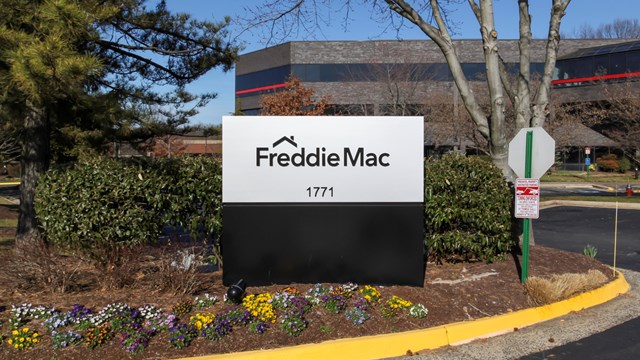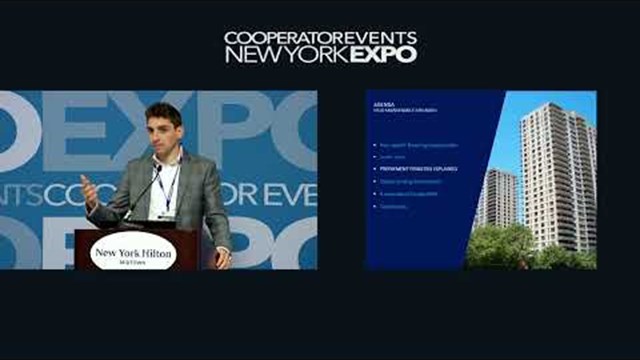
As of November 2, new lending guidelines from HUD mean that FHA loan requirements will be significantly tightened for condominium sales.
The new requirements could have a profoundly negative effect on the ability to sell or buy a condominium unit that requires FHA financing. It’s estimated that many—if not most—condo units will not meet the new guidelines, and unless they move quickly to comply they could see their property values directly impacted.
The new guidelines represent a significant departure from the mortgage industry’s “glory days” circa 2005, when practically anyone who wanted to own a home could. At that time, FHA loans had approximately a five percent market share.
Those days are long gone, as the subprime mortgage market no longer exists, and Fannie Mae and Freddie Mac underwriting guidelines have tightened dramatically; these underwriting guidelines are even stricter when financing a condominium than when financing a detached, single-family house.
Today, FHA’s market share is close to 40 percent, with over 60 percent of those being first-time homebuyers. These loans still allow a buyer to put 3.5 percent down, regardless of whether their intended purchase is a condominium. For a conventional Fannie Mae- or Freddie Mac-conforming loan, however, a buyer must put down 15 percent of the purchase price in many areas. It is of the belief of those of us in the industry that FHA’s market share will continue to grow as Fannie Mae and Freddie Mac continue to adjust their underwriting guidelines.
“Spot Approval” of Loans Discontinued
One of the more important changes is that effective November 2, “spot approval” of condo loans is being eliminated.
In the past, “spot approval” has been used to allow an individual unit to secure FHA financing for either a purchase or refinance when the overall condominium itself was not approved. After November 2, if a condominium unit is within a condominium association that is not HUD-approved, no FHA financing will be available. There are some exceptions to this—if a unit has an existing FHA loan for example, it may be refinanced to another FHA loan (streamline refinance). Additionally, no project approval is required if financing a HUD Real Estate Owned (REO) unit.
To further complicate matters, private mortgage insurance carriers have their own underwriting guidelines for conventional loans with less than 20 percent down payment. For many of the mortgage industry’s recent years, private mortgage insurance carriers approved policies based on the premise of reciprocity — that is, if a loan would be approved under conventional guidelines and could be sold, there would be an automatic mortgage insurance approval.
This is no longer the case. For example, a loan might get approved with a borrower who has 44 percent of his gross income going toward the proposed mortgage payment and all of his debt. Approved, right? Wrong. Obtaining mortgage insurance would not possible, as the private mortgage insurance company will only allow a debt ratio to a maximum of 40 percent. FHA approvals, on the other hand, have already taken into consideration the component of mortgage insurance.
More Bad News
The final piece of bad news is after November 2, the only way to have access to FHA financing will be if the entire condominium association is HUD-approved. It should be noted as well that Fannie Mae and Freddie Mac, through several investors, will expand their guidelines if a project is HUD-approved.
It is not difficult to assess the potential damage to condominium values due to this change. An additional consequence would be that if there is another rate dip in the mortgage market, many homeowners would not be able to take advantage of the new rates. FHA’s market share in the mortgage industry is currently closing in on 40 percent; these buyers would be precluded from being able to obtain financing. Without the availability of FHA financing, attracting a buyer with a small down payment will be virtually impossible.
So what can be done? Get your condominium HUD-approved. After October 1, there are two types of approval processes: HUD Review and Approval Process (HRAP); and Direct Endorsement Lender Review and Approval Process (DELRAP).
The first type (HRAP) is the same process for approval that existed prior to November 2. The condominium submits a variety of documents—including proof of at least 51 percent owner occupancy—and HUD reviews the documentation and provides an approval/denial.
Previous HUD-Approval May
Need Updating
Any condo buildings approved by HUD between October 2008 and October 2009 will carry over to the new approved list. Those condominiums approved prior to October 2008 will not. Any condominium that is currently approved, but whose original approval was before October 2008, must get re-certified and will not be carried over to the new list of approved projects.
As of July 31, 2009, there were 40,821 approved condominiums in the country; and of those, 4,209 were approved after October 2008. This means that there are about 36,000 condominiums that will need to re-apply.
This does not take into consideration the condominiums that have never had approval; this number is difficult to accurately assess, but it is estimated that over half of all condos are not currently HUD-approved.
The second type of loan approval process is new and is known as Direct Endorsement Lender Review and Approval Process (DELRAP). It allows for a lender with Direct Endorsed authority, combined with the appropriate experience, to process a project’s paperwork and give HUD approval to a condominium.
A lender that has unconditional Direct Endorsement is a lender that both loans its own funds (does not table fund) and has underwriters with the appropriate designation. These types of lenders have become increasingly important in the mortgage industry to consumers.
As legislators continue to pull the reins in on aggressive lending practices, mortgage companies who do not loan their own funds are becoming less competitive. The reasoning behind this is that in almost all cases, a mortgage broker (as opposed to lender), for example, holds very little responsibility beyond the funding date of a mortgage loan. In contrast, a direct lender is held financially responsible for the integrity of each loan far beyond the date of funding.
Many Realtors Unprepared
We have noticed that the realtor community is not as apprised of this impending change as perhaps they could be. Consequently, there will be many failed loans and purchases after the proposed deadline. It is very likely that there will be a dramatic increase in HUD approval requests shortly thereafter and we can only imagine the clog in the pipeline.
Currently, submitting paperwork for HUD approval on an existing condominium project has a two-week turnaround time with HUD. It has always been written into the guidelines that project approvals last for two years, but HUD admits that this has never been enforced. This will change after November 2, in that condominiums will have to be re-certified every two years.
With today’s economic environment, why eliminate 40 percent (and growing) of the population of buyers? Why not allow for conventional financing guidelines to be expanded? Often we wait until the last minute to take care of things that are not currently critical, even when we know the clock is ticking. However, because the process can take from two to eight weeks, it’s best to get started now to more easily navigate your condominium through the approval red tape.
Bruce Weltin is the associate vice president of Shamrock Financial Corp. in East Providence, Rhode Island.









Leave a Comment